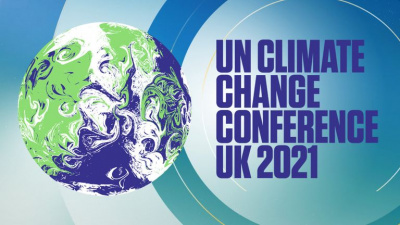Climate and COP26: War of words?
Date posted
Aida Greenbury posted the following text on Twitter as well as on LinkedIn (see Sources):
"Why the term 'sustainable development', widely used by politicians even in #COP26 , is an oxymoron:
- based on our current state, it’s obvious that we don’t know the definition of sustainable, it’s mostly a false claim.
- we need responsible equity more than development."
My response to this text:
Aida, yours is an interesting argument! An oxymoron refers to a set of terms that are in apparent contradiction to each other. You enter, seemingly following the growing effort to criticize COP 26 and similar efforts, a long-standing discussion over what "sustainable" and "development" mean, or should mean. As such this is largely a case of a "war of the words", to paraphrase an old film title. The term "sustainable development" does not mean that we do not know what these words mean, nor does it mean that that we have arrived.
First, there are likely as many views on what the term means as there are stakeholders. Second, I – and many with me – understand this term not so much as a characterization of what we have achieved so far, but as a reference to a goal, or set of goals, that we have set ourselves.
So, let us accept that there are different ways to understand this term, including both means and goals. The world is complex, to say the least, and getting all stakeholders to agree on the one definition that is right is impossible. It is equally useless to replace a term that we do not like with another term, which people in turn will begin arguing over. In my work in development cooperation I have witnessed a very large number of seemingly core terms that have fallen out of favor and been replaced by other terms (the World Bank, where I used to work, is in a key position to contribute to this, and is very good at it). As a result, the development cooperation lingo is massive and it is increasing, and we are left with wondering about the implications of this. Others who have commented in this thread appear to follow suit.
A major function and goal with agendas like the three Rio Conventions is to table, discuss, and hopefully agree on unified ways forward (I am myself mostly concerned with UNCCD). In this, to argue that politicians should not be involved is more than a little naive. We need them, they are key stakeholders in the representative democracies that many among us live in. If we – the citizens – do not like the politicians we elect, we have only ourselves to blame. But I certainly agree with your argument that civil society should be more involved, partly because this is the only way to get the politicians we want.
Finally, while I disagree with what you perceive as the current understanding of the term "sustainable development" (apparently with politicians – and likely bureaucrats – in charge), your call for "responsible equity" is in itself a contribution to the "war of the words". I admit to not quite getting at what this term means, could mean, or should mean.
Lars T Soeftestad
Notes
(1) My response to the above post on LinkedIn and Twitter (see Sources) was too long to fit there, and was accordingly posted here, with links back to the LinkedIn and Twitter posts.
(2) Image credit: https://news.sky.com/story/with-100-days-to-cop26-what-are-these-climate-talks-and-why-are-they-so-important-12361324
(3) Relevant Devblog articles: "Agder: fra Covid til COP?" here: https://www.devblog.no/no/article/agder-fra-covid-til-cop
(4) Permalink: https://www.devblog.no/en/article/climate-and-cop26-war-words
(5) This article was published 4 November 2021. It was revised 4 November 2021.
Sources
Greenbury, Aida. https://twitter.com/AidaGreenbury/status/1455301589585960961
Greenbury, Aida. https://www.linkedin.com/posts/aidagreenbury_aida-greenbury-on-twitter-activity-6861466917614563328-a4Ji/

Add new comment